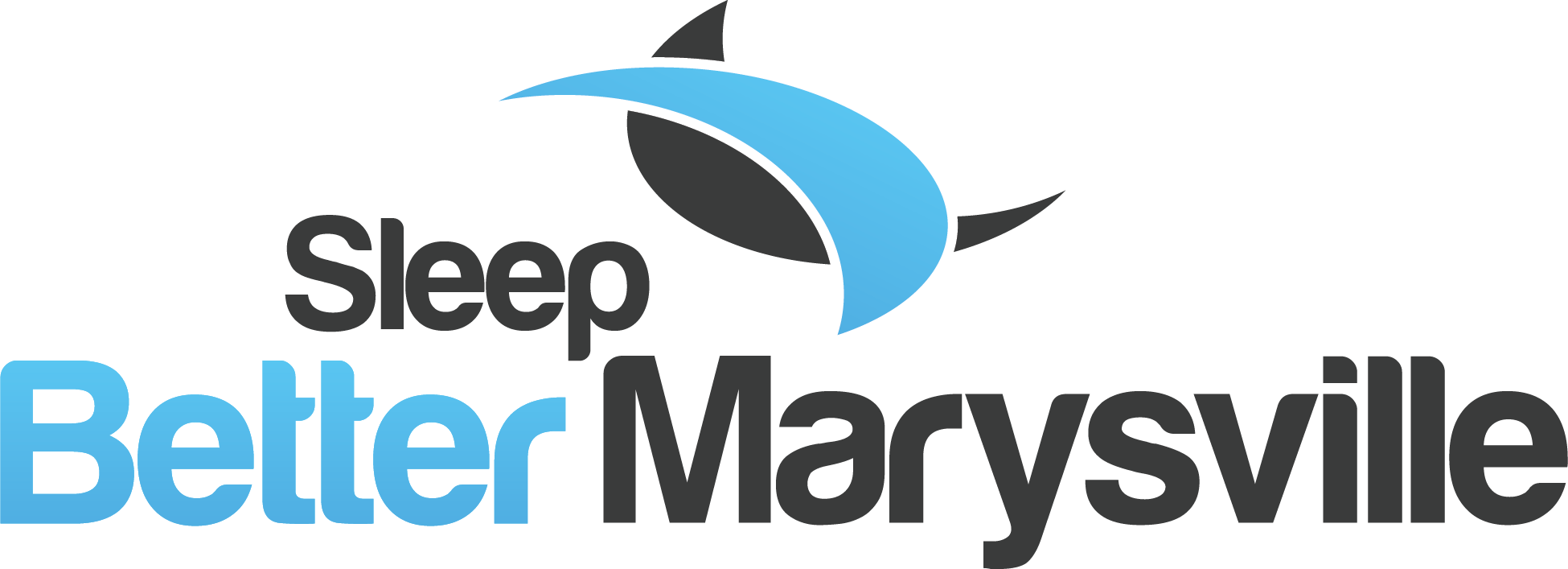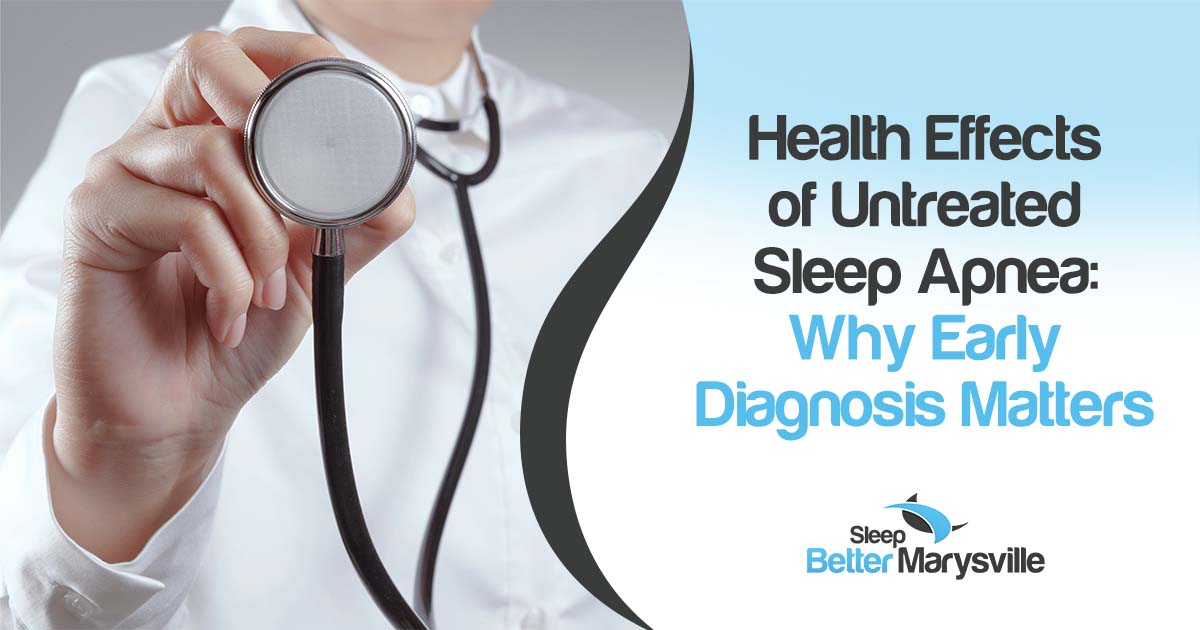Untreated sleep apnea is a serious health condition that can lead to a variety of complications if left unaddressed. Sleep apnea is characterized by repeated interruptions in breathing during sleep, which can reduce the quality of rest and place unnecessary strain on the body. For those who may have sleep apnea, early diagnosis and treatment are critical to preventing long-term health problems. This blog will explore the health effects of untreated sleep apnea and why seeking medical help as soon as possible is crucial for overall well-being.
The Impact of Untreated Sleep Apnea on Overall Health
Untreated sleep apnea disrupts sleep and can significantly affect a person’s physical health, increasing the risk of severe medical conditions. When left untreated, sleep apnea deprives the body of sufficient oxygen during sleep, which can have lasting consequences.
Cardiovascular Health Risks
One of the most concerning health effects of untreated sleep apnea is its impact on cardiovascular health. The frequent drops in oxygen levels during sleep cause the heart to work harder, increasing blood pressure and stressing the heart. Over time, this can contribute to the development of heart disease and other cardiovascular conditions. Studies show that individuals with untreated sleep apnea are at a higher risk of developing heart-related issues, including arrhythmias, heart attacks, and heart failure.
Increased Risk of Stroke
Another significant health risk associated with untreated sleep apnea is an increased risk of stroke. The fluctuations in oxygen levels caused by the condition can lead to a buildup of stress on blood vessels and the brain. This raises the likelihood of stroke, particularly in individuals with other pre-existing risk factors. Early diagnosis and treatment of sleep apnea can help to reduce the chances of experiencing a stroke and improve overall cardiovascular health.
High Blood Pressure and Heart Disease
Untreated sleep apnea is closely linked to high blood pressure (hypertension) and heart disease. The constant interruption of sleep can trigger the body’s fight-or-flight response, which elevates blood pressure. Over time, these repeated spikes in blood pressure can lead to chronic hypertension. Furthermore, untreated sleep apnea can lead to the narrowing of blood vessels, increasing the risk of heart disease. Managing sleep apnea through appropriate treatment can help prevent these serious complications.
The Link Between Untreated Sleep Apnea and Diabetes
The effects of untreated sleep apnea extend beyond the cardiovascular system and can also significantly impact metabolic health, particularly diabetes. Sleep apnea has been shown to influence insulin resistance, making it harder for the body to regulate blood sugar levels effectively. This connection between untreated sleep apnea and diabetes underscores the importance of seeking treatment as soon as possible.
How Sleep Apnea Impacts Insulin Resistance
Insulin resistance is a key factor in the development of type 2 diabetes. When sleep apnea is left untreated, repeated oxygen drops during sleep disrupt the body’s ability to process glucose appropriately. This makes it more difficult for cells to respond to insulin, leading to higher blood sugar levels and, eventually, the onset of diabetes. By treating sleep apnea, individuals can reduce the stress placed on the body and improve insulin sensitivity, which helps manage blood sugar levels.
Managing Diabetes with Sleep Apnea Treatment
Untreated sleep apnea can make managing diabetes more challenging for individuals already diagnosed with the condition. Poor sleep and reduced oxygenation can lead to increased insulin resistance and difficulty maintaining stable blood sugar levels. Addressing sleep apnea may help individuals with diabetes manage their condition, as improving sleep quality can positively affect insulin response and blood glucose control.
Early diagnosis and treatment of sleep apnea are essential to prevent the development or worsening of diabetes and to ensure better overall health outcomes. Managing both sleep apnea and diabetes can significantly reduce the risk of complications such as heart disease, nerve damage, and kidney problems.
Cognitive and Mental Health Effects of Untreated Sleep Apnea
Untreated sleep apnea impacts physical health and can have significant cognitive and mental health consequences. Poor sleep quality resulting from untreated sleep apnea can affect memory, focus, and mood. Over time, these issues can interfere with daily functioning and overall well-being.
Impaired Memory and Focus
One of the most noticeable effects of untreated sleep apnea is its impact on cognitive function. The constant interruptions in breathing during sleep prevent the brain from entering deeper stages of restorative sleep, which is crucial for memory consolidation and cognitive processing. This can lead to problems with concentration, memory recall, and the ability to think clearly. Individuals with untreated sleep apnea often experience mental fog, making it harder to perform daily tasks and make decisions effectively.
Depression and Anxiety Risks
In addition to cognitive decline, untreated sleep apnea has been linked to mental health disorders such as depression and anxiety. Chronic sleep deprivation caused by frequent awakenings during the night can lead to mood disturbances, irritability, and feelings of hopelessness. The constant fatigue associated with untreated sleep apnea can also contribute to feelings of anxiety. Managing sleep apnea through proper treatment can improve sleep quality, reduce the risk of developing mental health issues, and help manage existing symptoms.
Impact on Sleep Quality and Mental Clarity
The lack of consistent, quality sleep due to untreated sleep apnea affects more than just physical health. The impact on mental clarity is significant, as individuals may struggle to think, make decisions, or complete tasks efficiently. This can hurt personal and professional life. By seeking treatment for sleep apnea, individuals can experience improved sleep quality, better cognitive function, and greater mental clarity, contributing to overall quality of life.
Sleep Apnea and Daytime Fatigue: A Dangerous Cycle
Untreated sleep apnea often leads to excessive daytime fatigue, which can create a dangerous cycle. Individuals who experience disrupted sleep may feel extremely tired during the day, yet the fatigue does not resolve with rest. This can affect mood, energy levels, and safety, especially when driving or operating machinery.
The Role of Sleep Apnea in Excessive Daytime Sleepiness
One of the most common symptoms of untreated sleep apnea is excessive daytime sleepiness, also known as hypersomnia. Due to the fragmented sleep caused by breathing interruptions, individuals often do not reach the deeper stages of restorative sleep, leaving them tired and groggy during the day. This persistent fatigue can lead to difficulty staying awake during the day, reducing productivity and impairing the ability to focus on tasks.
Impact on Work and Daily Life Performance
Daytime fatigue caused by untreated sleep apnea can severely impact work performance and daily activities. The lack of energy and mental clarity makes it difficult to stay alert and focused on responsibilities, leading to mistakes, accidents, and decreased efficiency. In severe cases, untreated sleep apnea can affect job performance and strain personal relationships. Early diagnosis and treatment can help individuals regain energy and improve their ability to perform daily tasks, leading to a more productive and fulfilling life.
Early Diagnosis: The Key to Preventing Complications
Recognizing the signs and symptoms of sleep apnea and seeking early diagnosis can significantly reduce the risk of severe health complications. Untreated sleep apnea can lead to long-term health issues, but identifying the condition early allows for timely intervention, preventing many of these risks from escalating.
The Importance of Timely Diagnosis
Untreated sleep apnea often goes undiagnosed for years, as many individuals may not be aware of their breathing interruptions during sleep. Early diagnosis is critical because it allows healthcare professionals to identify the condition before it causes irreparable damage to vital organs and systems. Typical signs, such as loud snoring, excessive daytime sleepiness, and difficulty focusing, should be addressed with a healthcare provider. By seeking a diagnosis early, individuals can begin treatment and prevent the escalation of sleep apnea-related health issues.
How Treatment Can Prevent Long-Term Health Issues
Treatment for sleep apnea can take many forms, from lifestyle changes and CPAP therapy to surgery in more severe cases. The goal of treatment is to restore normal breathing during sleep, which improves oxygen levels and overall health. By managing sleep apnea early, individuals can prevent or reduce the risk of developing serious complications such as heart disease, stroke, high blood pressure, diabetes, and mental health disorders. Early intervention can significantly enhance quality of life and lower the risk of long-term health problems associated with untreated sleep apnea.
Options for Treating Sleep Apnea
There are several treatment options available for those diagnosed with sleep apnea. The most common treatment is continuous positive airway pressure (CPAP) therapy, which uses a machine to deliver a steady stream of air to keep the airways open during sleep. Other treatments include oral appliances, lifestyle modifications such as weight loss and position therapy, and surgery in more severe cases. The appropriate treatment will depend on the severity of the condition and individual health factors. Consulting with a healthcare provider is essential to determine the best course of action for managing sleep apnea effectively.
Get Screened Today to Protect Your Health from Untreated Sleep Apnea
If you or someone you know is experiencing signs of sleep apnea, it’s essential to seek a diagnosis as soon as possible. Early intervention can prevent serious health complications and improve quality of life. Contact Sleep Better Marysville today at (614) 777-7350 to schedule a consultation and take the first step towards better health and sleep.

